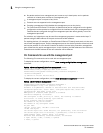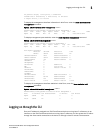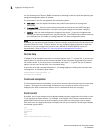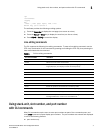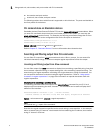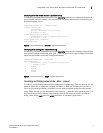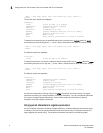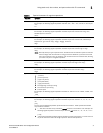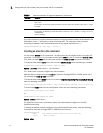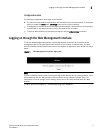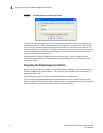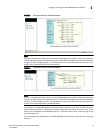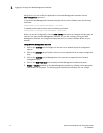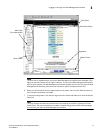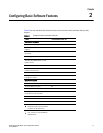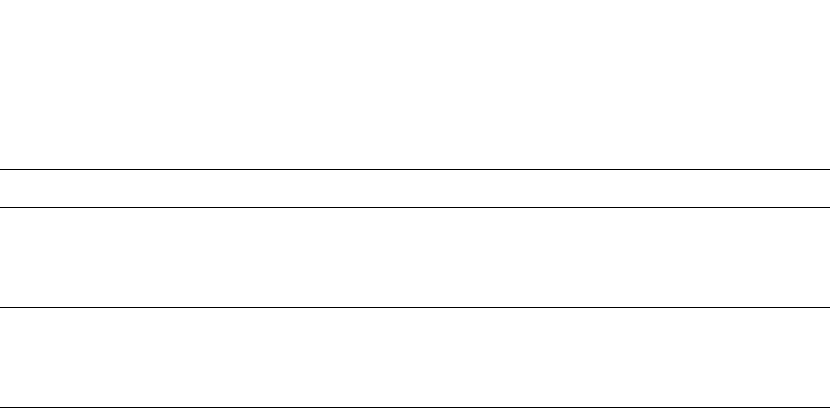
10 PowerConnect B-Series FCX Configuration Guide
53-1002266-01
Using stack-unit, slot number, and port number with CLI commands
1
If you want to filter for a special character instead of using the special character as described in the
table above, enter “\” (backslash) in front of the character. For example, to filter on output
containing an asterisk, enter the asterisk portion of the regular expression as “\*”.
PowerConnect#show ip route bgp | include \*
Creating an alias for a CLI command
You can create aliases for CLI commands. An alias serves as a shorthand version of a longer CLI
command. For example, you can create an alias called shoro for the CLI command show ip route.
Then when you enter shoro at the command prompt, the show ip route command is executed.
To create an alias called shoro for the CLI command show ip route, enter the following command.
PowerConnect(config)#alias shoro = show ip route
Syntax: [no] alias <alias-name> = <cli-command>
The <alias-name> must be a single word, without spaces.
After the alias is configured, entering shoro at either the Privileged EXEC or CONFIG levels of the
CLI, executes the show ip route command.
To create an alias called wrsbc for the CLI command copy running-config tftp 10.10.10.10 test.cfg,
enter the following command.
PowerConnect(config)#alias wrsbc = copy running-config tftp 10.10.10.10 test.cfg
To remove the wrsbc alias from the configuration, enter one of the following commands.
PowerConnect(config)#no alias wrsbc
or
PowerConnect(config)#unalias wrsbc
Syntax: unalias <alias-name>
The specified <alias-name> must be the name of an alias already configured on the Dell
PowerConnect device.
To display the aliases currently configured on the Dell PowerConnect device, enter the following
command at either the Privileged EXEC or CONFIG levels of the CLI.
PowerConnect#alias
wrsbc copy running-config tftp 10.10.10.10 test.cfg
shoro show ip route
Syntax: alias
| A vertical bar separates two alternative values or sets of values. The output can match one or the
other value.
For example, the following regular expression matches output that contains either “abc” or “defg”:
abc|defg
( ) Parentheses allow you to create complex expressions.
For example, the following complex expression matches on “abc”, “abcabc”, or “defg”, but not on
“abcdefgdefg”:
((abc)+)|((defg)?)
TABLE 5 Special characters for regular expressions (Continued)
Character Operation



